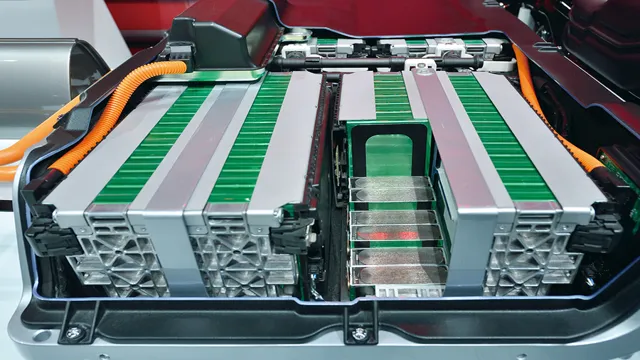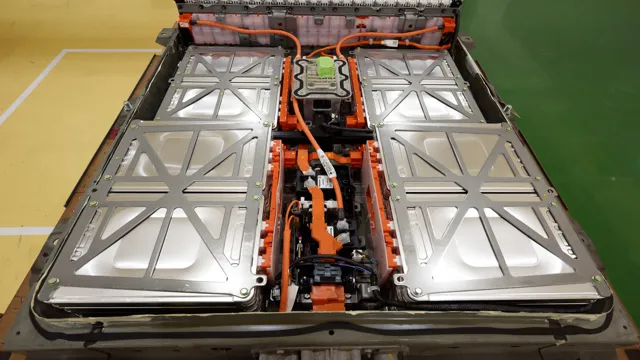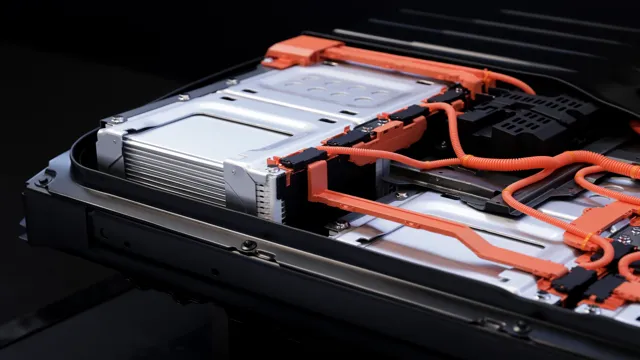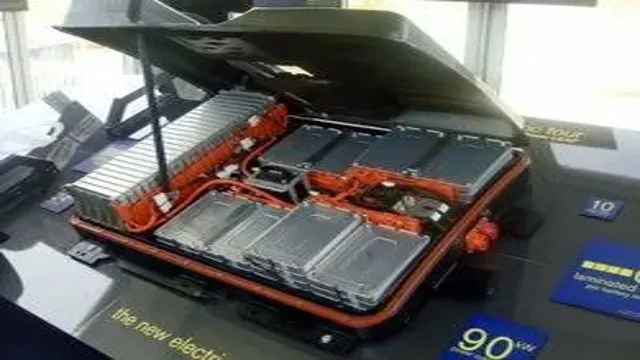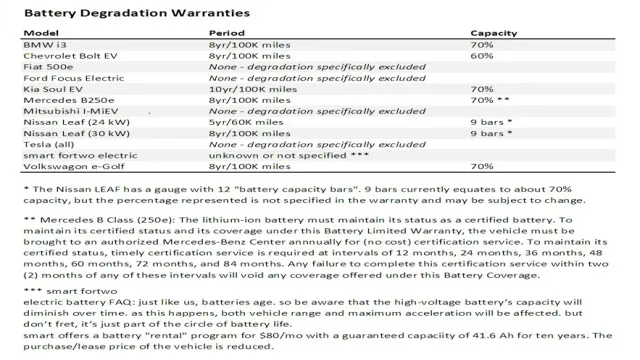Unlocking the Truth: Can Electric Car Batteries Last 15 Years or More?
Electric cars are becoming increasingly popular around the world, with their eco-friendly nature and cost-effective savings on fuel. However, many potential buyers may be hesitant about investing in an electric car due to concerns about the longevity of their batteries. After all, an electric car battery is a crucial component of the vehicle, storing power to keep it running smoothly.
So, the question on everyone’s mind is: do electric car batteries last 15 years or more? In this blog post, we’ll explore the answer to this pressing question and provide you with a comprehensive guide to understanding the lifespan of electric car batteries.
Overview of Electric Car Batteries
One of the main concerns for potential electric car buyers is the longevity of the battery. The question on most people’s minds is, do electric car batteries last 15 years? The answer to this question varies depending on a variety of factors including the make and model of the car and the way in which the battery is used and maintained. Generally, electric car batteries are designed to last for at least 10 years with most manufacturers offering a warranty to back this up.
However, with proper maintenance and careful use, some batteries have been known to last up to 15 years or more. It’s important to note that as the battery ages, it may not hold as much charge as it did when it was brand new, but it will still be usable. In addition, as technology continues to improve, it’s likely that electric car batteries will become more durable and have a longer lifespan in the future.
What Is an Electric Car Battery?
An electric car battery is a rechargeable battery that powers an electric vehicle. It stores electrical energy that is used to power the car’s motor, electronics and other systems. The battery is the most critical component of the electric car, and its performance directly affects the car’s range, acceleration, and overall performance.
Most modern electric car batteries are made of lithium-ion cells, which are lightweight, powerful and have a high energy density. They are also durable and can last for many years with proper care. However, battery technology is continuously developing, and new materials and designs are being researched and tested to improve performance and reduce costs.
In summary, the electric car battery is the backbone of the electric vehicle, responsible for powering the car and making emission-free driving possible.
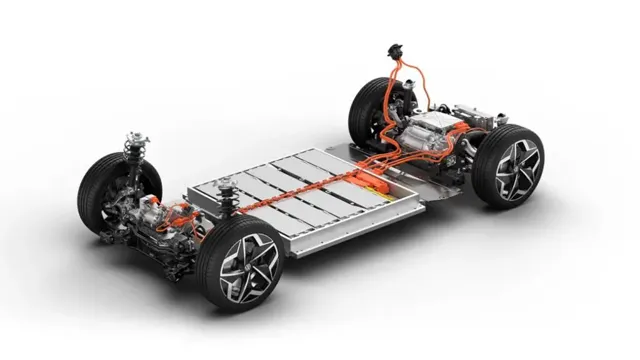
How Do Electric Car Batteries Work?
Electric Car Batteries Electric car batteries are the powerhouse behind the vehicle’s electric motor. Unlike traditional gasoline-powered engines, electric cars rely on rechargeable batteries to store and provide energy. The battery pack consists of multiple battery cells that are interconnected to work together.
These battery cells are made up of either lithium-ion, nickel-metal hydride or lead-acid. Lithium-ion batteries are the most common in use today because they are more efficient and have a higher energy density, which allows them to store more energy in less space. Each battery cell is monitored by the vehicle’s onboard computer system, which ensures that the battery is charging and discharging correctly.
When the vehicle is plugged in, the battery charges through an electric connection, and when it’s time to use the stored energy, the battery powers the electric motor that propels the car. Electric car batteries come in various sizes and configurations, depending upon the car’s make and model. As electric vehicles become more mainstream, battery technology continues to evolve, providing greater range and more efficient charging methods.
Factors That Affect Battery Life
Electric car batteries can last up to 15 years if they’re well-maintained and used correctly. Several factors can affect the battery’s lifespan, such as temperature, driving habits, charging patterns, and battery chemistry. Electric car batteries typically degrade over time, and their capacity decreases gradually as they discharge and recharge.
Extreme temperatures, such as high heat and cold, can cause faster degradation of the battery. Additionally, frequent fast charging and deep discharging can reduce the battery’s lifespan. Therefore, it’s essential to charge an electric car’s battery frequently but avoid discharging it completely.
Battery chemistry also plays a crucial role in determining the lifespan of electric car batteries. Many automakers are investing in developing new battery technologies to address the longevity concerns. Overall, electric car batteries can last up to 15 years if they’re well-maintained and used correctly.
Frequency of Use
When it comes to battery life, how often you use your device is a critical factor to consider. Frequent use of your phone or tablet can significantly shorten the battery’s lifespan. The more you use your device, the more power it consumes, and the faster the battery drains.
However, the frequency of use alone may not be the only influencing factor. The duration of use and the specific tasks you perform can also impact battery life. For example, streaming videos or playing games require more power than browsing the internet or sending texts.
Additionally, how often you charge the device and the charging process itself can also play a role in the battery’s health. Using a fast charger can cause the battery to degrade faster than a standard charger. In conclusion, how often you use your device, the duration, and the activities you engage in, along with the charging process, all contribute to the longevity of your battery.
Therefore, it’s essential to manage your device’s period of use wisely and recharge it correctly to ensure optimal battery health.
Temperature
Temperature When it comes to the factors that affect battery life, one of the most significant is temperature. High temperatures can cause a battery to degrade more quickly, reducing its lifespan and overall performance. This is because heat speeds up the chemical reactions that occur within the battery, leading to faster wear and tear on the materials inside.
In extreme cases, high temperatures can even cause a battery to overheat, which can be dangerous. On the other hand, very low temperatures can also have a negative impact on a battery’s performance. When batteries get too cold, the chemical reactions that generate electricity can slow down, limiting the flow of power.
This means that batteries might not last as long or provide as much power when used in cold environments. As a rule of thumb, it’s best to keep batteries at moderate temperatures to ensure optimal performance and longevity.
Charging Habits
As smartphone technology continues to advance, one thing that remains a constant concern is battery life. Many factors can affect the lifespan of our phone’s battery. One of these is our charging habits.
It is essential to avoid common mistakes such as overcharging, which can lead to overheating and damage to the battery. Another mistake that people make is using cheap and low-quality chargers that can damage the battery or cause it to deteriorate quickly. It’s also important to avoid charging our phones with cases or covers on, which can cause the battery to overheat.
Lastly, it’s a good idea to avoid using our phones while charging, as this can cause the battery to work harder and generate more heat, again shortening its lifespan. By being mindful of our charging habits and taking necessary precautions, we’re giving our battery the best chance of a long and healthy life.
Real-Life Battery Life Expectancy
When it comes to the lifespan of electric car batteries, there’s no short and easy answer because there are several factors that can influence it. However, research shows that electric car batteries last an average of 8-10 years, but can last up to 15 years or more if well-maintained and driven mainly in optimal conditions. These optimal conditions include moderate temperatures and avoiding frequent full discharge and full charge cycles, which can put a lot of strain on the battery.
Additionally, it’s worth noting that different car models have different types of batteries with varying levels of durability. For instance, some models have liquid-cooled batteries that tend to last longer than air-cooled batteries. While electric car batteries may seem daunting to the uninitiated, it’s in your best interest to learn more about specific models and follow best practices for battery maintenance to get the most out of your electric vehicle.
So, do electric car batteries last 15 years? It’s possible, but it largely depends on how well the battery is taken care of and how it is used on a day-to-day basis.
Study Results & Research Findings
When it comes to the battery life of our devices, there is always a concern about how long they will last before needing to be replaced. A recent study conducted by the tech company, Cadex, found that the average life expectancy for smartphone batteries is around two to three years. However, this can vary depending on how often the battery is charged and used, as well as the overall quality of the device.
It’s important to note that while the battery life may decrease over time, this does not necessarily mean that the device needs to be replaced. In fact, there are many ways to extend the life of your battery, such as avoiding extreme temperatures and optimizing your device’s settings. By taking proper care of your device’s battery, you can help to ensure that it lasts as long as possible.
Examples of Long-Lasting Electric Car Batteries
Electric car batteries have come a long way since their inception, with modern-day batteries lasting longer than ever before. One example of a car with a long-lasting battery is the Tesla Model S. This car’s battery has proven to be durable enough to last up to 300,000 miles before showing any significant degradation.
Another car with an impressive battery life is the Chevrolet Bolt EV. The Bolt’s battery has been rated to last up to 238 miles before needing to be recharged, which is more than enough for most daily commutes. The Nissan Leaf also boasts a long battery life, with some models lasting up to eight years with no degradation.
However, it’s important to note that while these batteries may have long life expectancies, their overall lifespan depends on various factors such as usage, maintenance, and weather conditions. Therefore, it’s crucial to take proper care of your electric car’s battery to ensure that it lasts as long as possible.
How to Extend the Life of Your Electric Car Battery
If you’re wondering whether electric car batteries last 15 years, the answer is that it depends on several factors, including how well you take care of your vehicle and battery. But there are ways to extend the life of your electric car battery so you can enjoy driving your eco-friendly car for longer. One way is to avoid depleting your battery completely, as this can put extra strain on it and reduce its lifespan.
It’s also important to keep your battery cool to avoid overheating, which can cause damage and reduce its capacity over time. Regular maintenance, such as checking your battery’s water levels and keeping it clean, can also help to prolong its life. Ultimately, your battery’s lifespan depends on how well you care for it, so be sure to follow your car manufacturer’s recommendations and take good care of your electric car battery for years to come.
Tips for Maximizing Battery Life
Maximizing battery life is a crucial concern when you’re an electric car owner. The battery is the heart of your vehicle and keeping it healthy can prolong the life of your car. There are a few tips you can use to extend the life of your electric car battery.
Firstly, keeping your battery charged between 20% and 80%, which is the optimal range for battery performance. Secondly, avoid extreme temperatures, both hot and cold, as they can put a strain on the battery and reduce its efficiency. Thirdly, try to avoid frequent rapid charging sessions as these can also reduce the battery’s overall lifespan.
Lastly, keep an eye on the battery’s health by regularly checking its state of charge and planning your trips accordingly. These simple steps will go a long way in maximizing your electric car battery’s life.
Maintenance and Care Recommendations
Maintaining and prolonging the lifespan of an electric car battery is important for both your wallet and the environment. Lucky for us, it’s not rocket science! With a few simple care recommendations, you can extend the life of your electric car battery. For starters, try not to run the battery down to zero frequently, as this can wear out the battery quicker.
Instead, keep the battery level between 20% and 80% when charging. Make sure to always keep your battery charged during long periods of inactivity and avoid extreme temperatures, as extreme heat and cold can cause unwanted damage. Additionally, a clean battery is a happy battery, so keep the battery and its surrounding areas clean and free from any dirt or debris that may interfere with the performance.
It’s pretty much like caring for a plant; take care of your electric car battery, and it will take care of you.
Conclusion
In conclusion, the question of whether electric car batteries last 15 years is like asking if humans can live to be 100 years old. Some may not make it past a few years, while others exceed the expected lifespan. However, with advancements in technology and continued research, it is likely that electric car batteries will only continue to improve and last even longer than 15 years.
So, whether you’re a car or a human, taking good care of yourself is key to a long and healthy life.”
FAQs
What is the lifespan of electric car batteries?
The lifespan of electric car batteries can vary greatly depending on various factors, but on average they can last between 8 to 10 years.
Can an electric car battery last 15 years?
It is possible for an electric car battery to last 15 years, but it heavily depends on the usage and maintenance of the battery.
What factors can impact the lifespan of electric car batteries?
The lifespan of electric car batteries can be impacted by many factors, such as the frequency of charging, the number of miles driven, the climate in which the vehicle is used, and the type of battery chemistry.
Is it cost-effective to replace an electric car battery after 15 years?
It depends on the cost of the battery replacement and the overall value of the vehicle. In some cases, it may be more cost-effective to replace the battery, while in others it may not be worth the investment.


